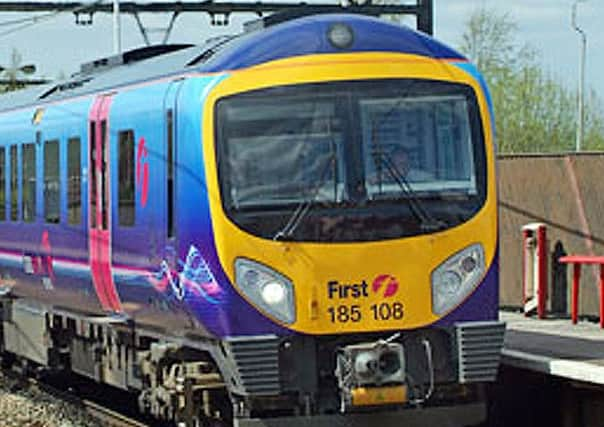Paul Salveson: The North could signal a new approach to rail


Detailed negotiations between the Department for Transport (DfT) and Rail North have been on-going for months, a key issue being how much cash transfers with the franchising responsibilities. Northern politicians are canny enough not to accept a deal which provides for anything less than the current level of funding.
There’s a further issue as to whether the DfT will merge the large “Northern” franchise, managed by Abellio, a subsidiary of state-owned Dutch Railways, and Serco, with the inter-regional TransPennine Express operation, currently run by First and French state-owned Keolis. Both franchises have been extended to February 2016 and there is speculation they may be combined into one big contract.
Advertisement
Hide AdAdvertisement
Hide AdA parallel development has been consultation by Rail North on a Long Term Rail Strategy for the North of England. The process has been underway for several months and the deadline for submissions passed on Monday.
The draft strategy offers the North an opportunity to raise its game significantly and look at the network as a whole, over a period of 20 years. It provides a framework for the growth of a network which could contribute much more to economic growth. While the original Northern franchise, set up in 2004, assumed zero growth, the strategy recognises that continued growth of the rail network will happen and the resources need to be there to meet it.
Nobody would say the draft is perfect and the final version will be shaped by the responses to the consultation. It needs a more compelling vision for the North which binds rail and sustainable development together. It needs more emphasis on people, recognising that rail can be a tool for social cohesion. We still have far too many stations which are inaccessible and scary places to be at night. It should be less tightly focused just on rail and be more imaginative in its approach towards complementary forms of transport, particularly the bus, but also cycling and walking.
A long-term rail strategy should avoid being too much of a shopping list, but it has to have some “meat” so it is more than just a generalised set of aspirations. It should provide an over-arching vision which contains tangible outcomes including further electrification, desperately-needed new rolling stock and line re-openings such as Skipton-Colne, York-Beverley and the Woodhead route linking Manchester and South Yorkshire. These could be delivered much more quickly than HS2 and bring greater benefits to Yorkshire as a whole.
Advertisement
Hide AdAdvertisement
Hide AdThere are other big issues facing rail in the North. Assuming Patrick McLoughlin does agree to devolution, the embryonic Rail North structure is already in place, with a small senior management team, to take up the challenge. There is a robust structure of overall political governance in place which will ensure those 33 transport authorities have a real say in how things are run, while ensuring there is a tight executive. It is inevitable that the big metropolitan transport authorities in West and South Yorkshire, Greater Manchester, the North East and Merseyside have a strong influence, but authorities such as North Yorkshire, Hull and East Riding have lobbied hard to ensure their voice is heard too.
If those 33 authorities do get rail franchising responsibilities, some thought should go into looking at how a future rail operation – let’s call it “Northern Railways” – is delivered. Does rail privatisation in its current form give best possible value for money?
A growing number of people in both the rail industry and local government would agree with the unions that it doesn’t. The new “Northern” and TransPennine franchises should be run as not-for-dividend social enterprises, with the profits recycled into creating a better railway instead of lining shareholders’ pockets.
Last year the two franchises returned profits totalling over £100m, which could buy a lot of station improvements and other aspirations.
Advertisement
Hide AdAdvertisement
Hide AdYorkshire – and the North as a whole – already has a dynamic co-operative sector. Could a new purpose-made co-operative be formed to run rail services which gives a real stake to passengers and railway employees?
It isn’t about going back to a discredited, centralised British Rail. It’s about creating a new form of enterprise with a business culture which combines social responsibility with entrepreneurial flair and dynamism. The North could – once again – be at the forefront of railway innovation.
Professor Paul Salveson is a former senior manager with Northern Rail. His new book Railpolitik: bringing railways back to communities is published by Lawrence and Wishart price £14.99. Yorkshire Post readers can get a £3 discount by quoting the code ‘railpolitik’ at checkout when ordering online www.lwbooks.co.uk.